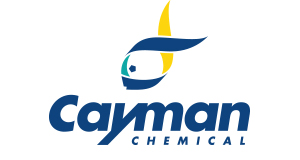Carvedilol, CAS 72956-09-3
Carvedilol, CAS 72956-09-3
SKU
CAY15418-250
Packaging Unit
250 mg
Manufacturer
Cayman Chemical
Availability:
loading...
Price is loading...
Shelf life (days): 1460.0
Formulation: A crystalline solid
Formal Name: 1-(9H-carbazol-4-yloxy)-3-[[2-(2-methoxyphenoxy)ethyl]amino]-2-propanol
Purity: ≥98%
Formula Markup: C24H26N2O4
Formula Weight: 406.5
CAS Number: 72956-09-3
Notes: Carvedilol is an antagonist of the β-adrenergic receptor (β-AR; Kds = 1.78, 0.4, and 5.01 nM for β1-, β2-, and β3-ARs, respectively).{25151} It also selectively binds to α1- over α2-ARs (Kis = 0.81 and 3,400 nM, respectively).{25150} Carvedilol reverses increases in heart rate induced by the β1-AR agonist isoproterenol (Item No. 15592) in isolated guinea pig atria (Kb = 0.8 nM).{43226} It prevents epinephrine-induced premature ventricular beats in a rat model of arrhythmia with an ED50 value of 0.25 mg/kg.{25150} Carvedilol inhibits the contractile response to the α1-AR agonist norepinephrine in isolated rabbit aorta (Kb = 11 nM).{43226} It decreases systolic blood pressure and heart rate in rat models of hypertension, including spontaneously hypertensive, renal hypertensive, and DOCA-salt hypertensive rats when administered at doses ranging from 3 to 30 mg/kg, as well as activates cardioprotective signaling through β-arrestin and ERK1/2 activation.{43227,25152,25153,23372} Carvedilol also inhibits severe acute respiratory syndrome coronavirus 2 (SARS-CoV-2) main protease (Mpro), also known as 3C-like protease (3CLpro; IC50 = 204.6 µg/ml) and reduces viral infectivity in SARS-CoV-2-infected Vero E6 cells (IC50 = 0.350 µg/ml).{64706} Formulations containing carvedilol have been used in the treatment of congestive heart failure and hypertension.
Formulation: A crystalline solid
Formal Name: 1-(9H-carbazol-4-yloxy)-3-[[2-(2-methoxyphenoxy)ethyl]amino]-2-propanol
Purity: ≥98%
Formula Markup: C24H26N2O4
Formula Weight: 406.5
CAS Number: 72956-09-3
Notes: Carvedilol is an antagonist of the β-adrenergic receptor (β-AR; Kds = 1.78, 0.4, and 5.01 nM for β1-, β2-, and β3-ARs, respectively).{25151} It also selectively binds to α1- over α2-ARs (Kis = 0.81 and 3,400 nM, respectively).{25150} Carvedilol reverses increases in heart rate induced by the β1-AR agonist isoproterenol (Item No. 15592) in isolated guinea pig atria (Kb = 0.8 nM).{43226} It prevents epinephrine-induced premature ventricular beats in a rat model of arrhythmia with an ED50 value of 0.25 mg/kg.{25150} Carvedilol inhibits the contractile response to the α1-AR agonist norepinephrine in isolated rabbit aorta (Kb = 11 nM).{43226} It decreases systolic blood pressure and heart rate in rat models of hypertension, including spontaneously hypertensive, renal hypertensive, and DOCA-salt hypertensive rats when administered at doses ranging from 3 to 30 mg/kg, as well as activates cardioprotective signaling through β-arrestin and ERK1/2 activation.{43227,25152,25153,23372} Carvedilol also inhibits severe acute respiratory syndrome coronavirus 2 (SARS-CoV-2) main protease (Mpro), also known as 3C-like protease (3CLpro; IC50 = 204.6 µg/ml) and reduces viral infectivity in SARS-CoV-2-infected Vero E6 cells (IC50 = 0.350 µg/ml).{64706} Formulations containing carvedilol have been used in the treatment of congestive heart failure and hypertension.

 Deutsch
Deutsch










